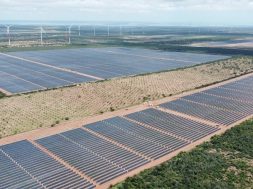
Northern Power Systems announces fully integrated energy storage system using any battery/mechanical storage option
Northern Power Systems Corp. a next generation renewable energy technology company, recently announced the release of a new product that enables developers and end-users to acquire a fully integrated energy storage system tailored to their needs in terms of power and energy.
The Northern Power ESS (Energy Storage Solution) features the advanced FP2000 FlexPhase power conversion system that has been featured in multiple technologies and applications. The system has a wide range of DC voltage optimization, able to be effective with Flow, Lithium, Lead Acid or any other chemical battery, as well as mechanical storage options such as flywheels. Northern Power leverages its abilities and experience in grid integration and renewable optimization in order to deliver the best solution for the customer’s needs.
Diego M. Tebaldi, VP of Global Business Development for Northern Power Systems, commented “This is a great step forward—responding to market demand where customers are requiring a fully integrated solution.” He continued, “We are proud to partner with key providers across the spectrum of the main components, using our multi-year experience to select components that provide the better technical solution for the application required, and offer the market an easier to deploy standard and pre-configured solution.”
Northern Power Systems offers integrated Energy Storage Solutions (ESS) configurable for a range of applications. NPS ESS can be packaged into containers, shelters, trailers, or buildings with an output power range of 125 kVA – 2,000 kVA. The duration of rated power can be configured from 15 minutes to 4 hours.
Key Applications of this solution include:
Utility Grid Support – frequency regulation, VAR support/power quality, peak shaving/load shifting, sub-station resiliency, renewable integration
Behind-the-Meter – demand management, time-of-use, back-up power, critical load support
Hybrid Microgrids – remote/islanded operation, black start, renewables utilization/reduced fuel consumption
















